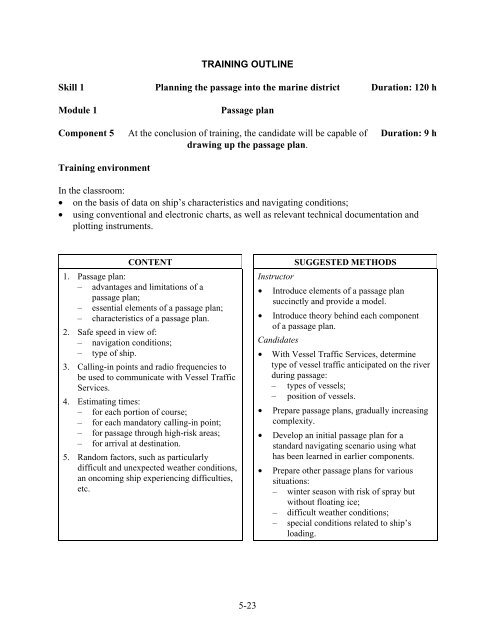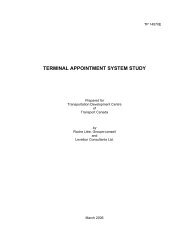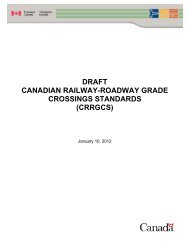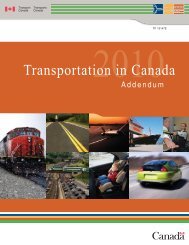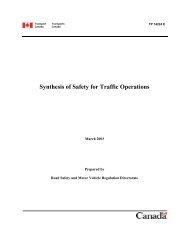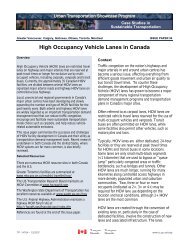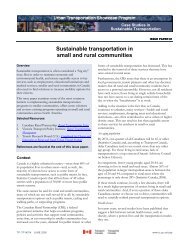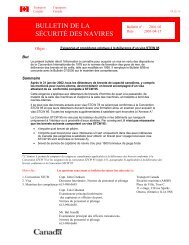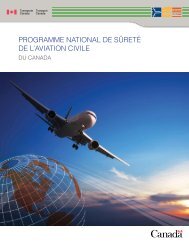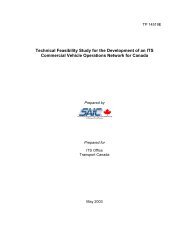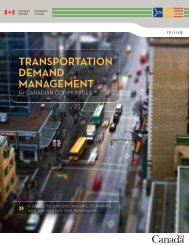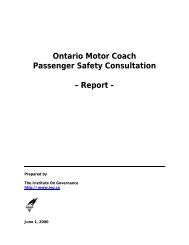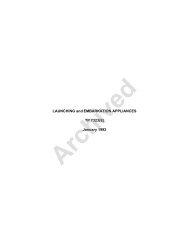District II Quebec City-Les Escoumins - Transports Canada
District II Quebec City-Les Escoumins - Transports Canada
District II Quebec City-Les Escoumins - Transports Canada
Create successful ePaper yourself
Turn your PDF publications into a flip-book with our unique Google optimized e-Paper software.
TRAINING OUTLINE<br />
Skill 1 Planning the passage into the marine district Duration: 120 h<br />
Module 1<br />
Passage plan<br />
Component 5 At the conclusion of training, the candidate will be capable of Duration: 9 h<br />
drawing up the passage plan.<br />
Training environment<br />
In the classroom:<br />
• on the basis of data on ship’s characteristics and navigating conditions;<br />
• using conventional and electronic charts, as well as relevant technical documentation and<br />
plotting instruments.<br />
CONTENT<br />
1. Passage plan:<br />
– advantages and limitations of a<br />
passage plan;<br />
– essential elements of a passage plan;<br />
– characteristics of a passage plan.<br />
2. Safe speed in view of:<br />
– navigation conditions;<br />
– type of ship.<br />
3. Calling-in points and radio frequencies to<br />
be used to communicate with Vessel Traffic<br />
Services.<br />
4. Estimating times:<br />
– for each portion of course;<br />
– for each mandatory calling-in point;<br />
– for passage through high-risk areas;<br />
– for arrival at destination.<br />
5. Random factors, such as particularly<br />
difficult and unexpected weather conditions,<br />
an oncoming ship experiencing difficulties,<br />
etc.<br />
SUGGESTED METHODS<br />
Instructor<br />
• Introduce elements of a passage plan<br />
succinctly and provide a model.<br />
• Introduce theory behind each component<br />
of a passage plan.<br />
Candidates<br />
• With Vessel Traffic Services, determine<br />
type of vessel traffic anticipated on the river<br />
during passage:<br />
– types of vessels;<br />
– position of vessels.<br />
• Prepare passage plans, gradually increasing<br />
complexity.<br />
• Develop an initial passage plan for a<br />
standard navigating scenario using what<br />
has been learned in earlier components.<br />
• Prepare other passage plans for various<br />
situations:<br />
– winter season with risk of spray but<br />
without floating ice;<br />
– difficult weather conditions;<br />
– special conditions related to ship’s<br />
loading.<br />
5-23


